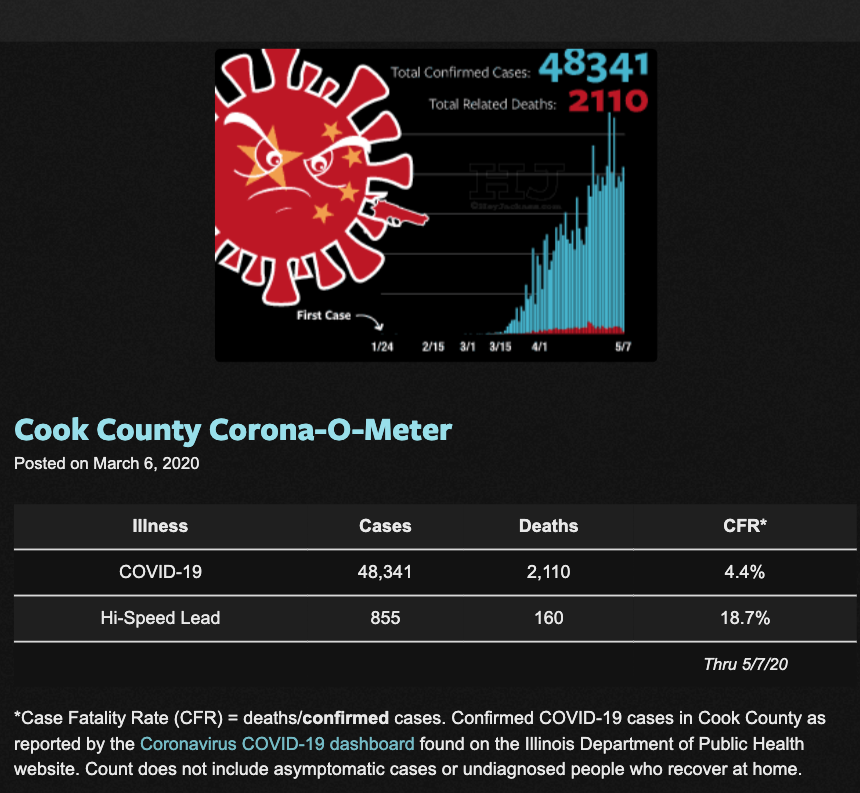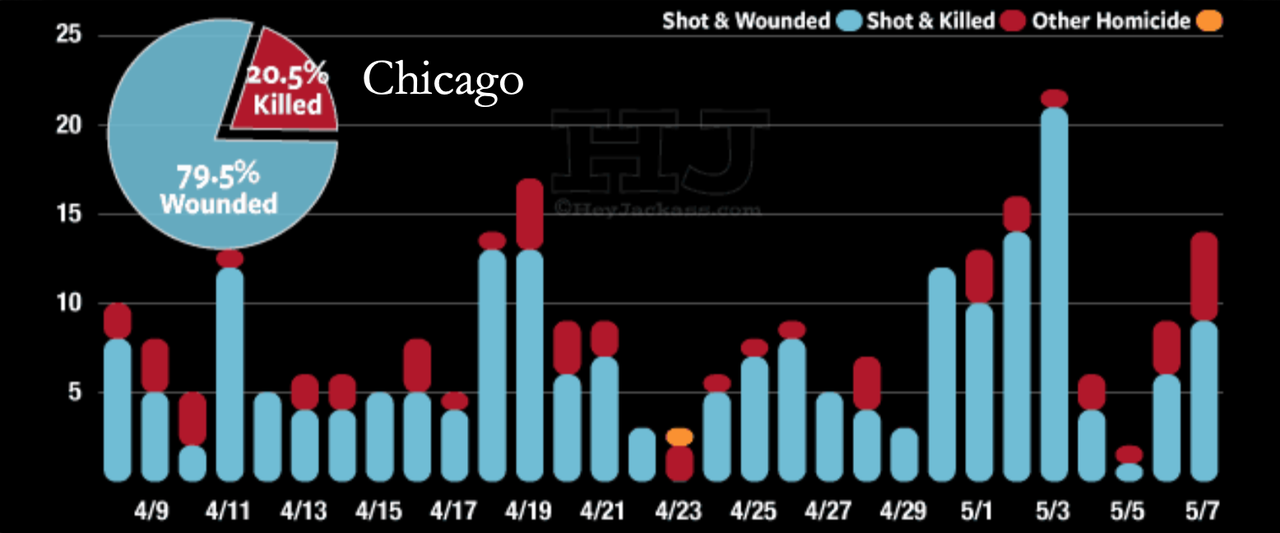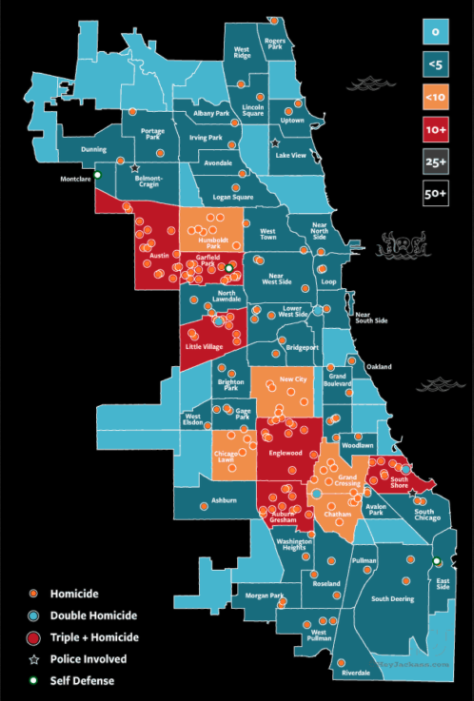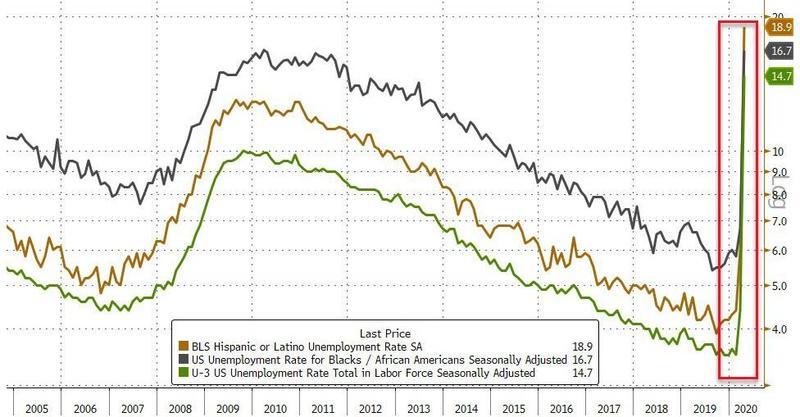Chicago Murder Rate Soars Despite Stay-At-Home Orders, Activists Blame “Lockdown Segregation”
Despite the pandemic and strict stay-at-home orders, one would naturally assume violent crime in Chicago’s inner cities would subside. But that was not the case in April, according to a new report via AP News, which said, “the city’s most deprived neighborhoods are still echoing to the sound of deadly gunfire and raucous partying.”
Homicides in America’s inner cities are cyclical. As the weather improves and daily temperature highs increase, everyone comes outside and hangs out in the streets. Many low-income folks have limited respect for government and law enforcement, so implementing social distancing measures have been challenging for Chicago officials. Drug dealers are still going to hustle on the corner, though some now wear masks and gloves.
Life continues in these areas, as the Chicago Police Department (CPD) reports a total of 56 murders in April despite lockdown orders. When compared to last year, that is only an 8% reduction from the same month. Now, this is contrary to what has been seen in New York and Los Angeles, where violent crime has dramatically declined during lockdowns.
Mayor Lori Lightfoot recently warned residents, mostly taking aiming at low-income neighborhoods, said that all partying during lockdowns must be stopped. She said residents must follow social distancing rules or could go to jail. “We are not playing games,” the mayor said last weekend.
“We will shut you down, and if we need to, we will arrest you and take you to jail, period.”
‘Don’t make us treat you as a criminal’#Chicago mayor Lori Lightfoot warns #COVID19 lockdown violators of serious consequences for throwing parties during a #pandemic pic.twitter.com/1v6mWfLhBy
— RT (@RT_com) May 5, 2020
AP said the mayor’s warning did very little to thwart social gatherings on the streets as dance parties and loud music were seen.
Janeal Wright threw a house party attended by hundreds of people on April 25 while his mother, a first responder in Chicago, worked a 24-hour shift. He apologized for the incident while speaking to @DavidBegnaud:
“I put myself at risk and I put my mother at risk as well.” pic.twitter.com/ZN5YxviIkm
— CBS This Morning (@CBSThisMorning) May 4, 2020
New video shows people partying Saturday night in Chicago during this COVID 19 pandemic.
Police broke up two large parties on the west side. No one was arrested. No one was cited. @cbschicago pic.twitter.com/y9c3tRfwZD
— Vi Nguyen (@ViNguyen) May 3, 2020
@Chicago_Police party now, 47sy and 48st, Shields ave pic.twitter.com/wooyXnNfAN
— A L E X (@ales_74) May 7, 2020
Father Michael Pfleger, an activist priest who has served in the Chicago area for three decades, said respect for authorities lacks in low-income areas, which have large concentrations of African-Americans and soaring income inequality.
“I think one of the reasons is that Chicago is more segregated than New York and LA,” Pfleger said while referring to why violent crime has been much higher in the city compared to other regions.
“Segregation here is horrible. You have segregated communities on the South and the West sides that you don’t have in other cities. I also think that decades of ignoring these segregated communities haven’t helped,” he said.
Pfleger said people who are looking to commit murder are unlikely to abide by social distancing rules.
Max Kapustin, senior research director at the University of Chicago Crime Lab, said most of the murders had occurred outside, and victims overlooked the public health orders.
“We don’t know if there’s anything else related to COVID-19 that may be exacerbating the issue,” he said.
Pfleger believes the pandemic has exposed the fragility of society. He said a major issue that clouds these areas is wealth inequality.
When it comes to a post-corona world and normalizing life after lockdowns for inner cities – he said, “I get so mad when I hear people say ‘I just want to get back to normal.’ No, normal was bad. Normal was evil and unjust. We want to create something new coming out of this.”
He said he wants to see the government make critical investments in neighborhoods and schools in underprivileged areas – but as we all know – the bailout money has gone to Wall Street for a second time in a little over a decade.
And what’s going to drive more instability in inner cities? You guessed it… massive unemployment.
Tyler Durden
Fri, 05/08/2020 – 21:45
via ZeroHedge News https://ift.tt/3bfMhxF Tyler Durden



